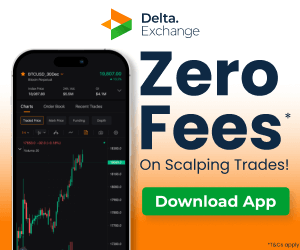South Korean authorities have escalated their campaign against unregistered crypto platforms, blocking 14 foreign exchange apps, including KuCoin and MEXC from Apple’s App Store.
This follows a similar move targeting Google Play last month, signaling a broader crackdown on platforms skirting local regulations. With crypto adoption soaring, regulators aim to curb money laundering and protect millions of users. Here’s what you need to know.
Regulators Target Unregistered Platforms
South Korea’s Financial Intelligence Unit (FIU) ordered Apple to remove apps linked to overseas crypto operators lacking proper registration. Under local law, foreign exchanges must report to the FIU to operate legally. However, platforms like KuCoin and MEXC failed to comply, prompting the April 11 ban. “Unreported activities risk criminal charges,” the FIU stated, noting fines up to $35,200 or five-year prison terms.
The crackdown mirrors actions taken in 2022 and 2023, when regulators blocked 22 platforms. For the existing users of banned apps can no longer update them, though functionality remains unclear.
Apple Follows Google’s Lead in App Blocking
Apple’s removal of 14 apps comes weeks after Google blocked 17 exchanges on March 26. Both tech giants cooperated with regulators to restrict access. Notably, KuCoin and MEXC faced bans on both platforms.
Authorities published a list of 22 unregistered exchanges, emphasising their illegality. Following this, South Koreans now face limited options for accessing global crypto markets. “We’ll keep blocking apps and websites to prevent harm,” the FIU affirmed.
Legal Repercussions for Non-Compliance
Foreign crypto firms operating in South Korea must report under the Specific Financial Transaction Information Act. Failure to do so triggers penalties. For instance, regulators recently flagged 16 firms in 2022 and six in 2023.
Additionally, officials warned citizens against using unregistered platforms. “Users risk losing funds or facing legal scrutiny,” a March FSC report noted. Despite this, neither KuCoin nor MEXC responded to CoinDesk’s requests for comment.
South Korea’s Crypto Market Hits Saturation
Crypto adoption has exploded, with users surpassing 16 million, nearly 30% of the population, by March 31. Industry experts predict 20 million users by 2025. Even public officials hold crypto: Over 20% reported owning digital assets worth $9.8 million collectively, including Bitcoin, Ethereum, and Dogecoin.
However, rapid growth has intensified regulatory scrutiny. “The market’s saturation demands stricter oversight,” an FSC spokesperson said.
Global Implications for Crypto Exchanges
South Korea’s actions highlight growing global pressure on crypto platforms to comply with local laws. Exchanges now face a dilemma: register abroad or lose access to lucrative markets.
For example, after the Apple and Google bans, affected platforms may struggle to regain user trust. Furthermore, the FIU’s collaboration with tech firms sets a precedent other nations could follow.
What’s Next for Crypto Regulation?
The FIU vows to continue blocking apps and websites of non-compliant operators. Future steps may include harsher penalties or expanded monitoring.
South Korea plans to finalise its first crypto-specific laws by mid-2024. These could mandate stricter audits, reserve requirements, and user protections. As regulations tighten, the crypto industry must adapt or risk exclusion from one of its most active markets.
Written By Fazal Ul Vahab C H



